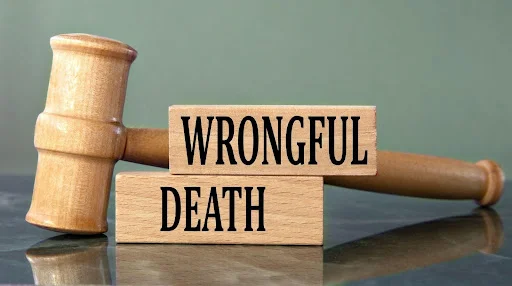Losing someone you love is hard enough. Losing them in a place that promised care and safety is even harder. Nursing homes are meant to provide comfort in the later years of life, but sometimes they fail in ways that can’t be excused Wrongful death. And in the worst cases, those failures lead to death that could have been prevented.
This is what people mean when they talk about “wrongful death” in nursing homes. It’s a painful subject, but an important one for families who want answers and accountability.
What Does Wrongful Death in a Nursing Home Mean?
Not every death inside a care facility is wrongful. Most residents pass away naturally because of age or illness. But wrongful death happens when a death could have been avoided if proper care was given.
Some examples include:
- Infections ignored or left untreated
- Mistakes with medication, such as overdoses or skipped doses
- Lack of food, water, or basic supervision leading to decline
- Falls or accidents because residents were left alone when they needed help
- Abuse from staff or other residents that was not stopped
In short, wrongful death is about neglect, abuse, or unsafe conditions. It’s about a facility failing to do what it promised: protect and care for its residents.
Stay updated with the latest trends and ideas worth exploring.
Signs That Something Is Not Right
Families often sense trouble before they have proof. A small detail catches your eye, or a change in your loved one doesn’t feel natural. Paying attention to those instincts can reveal bigger problems.
- Medical Red Flags
Sudden changes in health without a clear reason. Conditions that got worse because no one treated them. Bedsores, broken bones, or bruises with no good explanation.
- Facility Behavior
Care notes that don’t add up. Staff who avoid questions or give different answers each time. Managers who seem more focused on ending the conversation than helping.
- Family Observations
Rooms not cleaned properly. Dirty bedding or strong odors. Residents left sitting alone for hours. Poor hygiene or clothing that looks unchanged.
Each of these signs on its own may not prove abuse or neglect. But together, they can show a pattern. Families should keep track. Write things down. Take photos if possible. Those details matter later.
Steps Families Can Take
The first days after losing a loved one in a nursing home are filled with grief. But taking certain steps early can help protect the truth.
- Request records – Ask for medical charts, care notes, and incident reports. Keep copies.
- Report your concerns – Every state has agencies that handle elder care complaints. In California, that includes Adult Protective Services and the Department of Public Health. Reporting creates a record and may start an investigation.
- Talk to people – Sometimes staff or other residents may have seen things worth noting. Be respectful, but ask questions if you can.
- Speak to an attorney – Lawyers who handle wrongful death in nursing homes know how to collect evidence, find answers, and push for accountability.
The Role of Attorneys
Families often wonder if calling a lawyer is too extreme. But in reality, legal help can make the difference between unanswered questions and real accountability.
Los Angeles wrongful death nursing home attorneys can review records, interview staff, and work with medical experts. They know how to spot gaps in care and uncover what went wrong.
Compensation is often part of the case. It may cover medical bills, funeral costs, and the emotional pain caused by the loss. But more than money, a wrongful death case forces facilities to take responsibility.
Families in large cities, including Los Angeles, often turn to wrongful death in nursing homes attorneys who focus on these cases. Having legal support gives families the strength to face institutions that might otherwise ignore them.
Why Action Matters
Taking action is not about revenge. It’s about protecting dignity and making sure no other family faces the same loss.
Nursing homes that face scrutiny are more likely to change their practices. Legal action also gives families a chance to find closure, knowing they stood up for their loved one.
Grief is heavy, but silence makes it heavier. Action, whether through reporting, questioning, or legal steps, brings light to the truth.
Protecting Dignity, Seeking Justice
The passing of a loved one in a nursing home leaves behind memories, love, and often unanswered questions. Families don’t have to carry that burden alone.
If you suspect neglect or abuse played a role in a wrongful death, you have the right to act. You can ask questions, demand answers, and seek help. Attorneys who focus on wrongful death in nursing homes, including those in Los Angeles, can guide families through this process and fight for justice.
Your loved one deserved safety, respect, and compassion. Taking steps now is one way to honor them, and to make sure others are better protected in the future.
Find useful guides, fresh insights, and engaging reads waiting on 2A Magazine.







